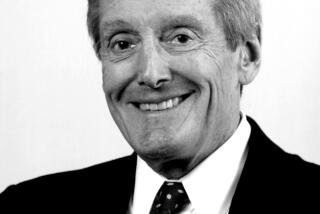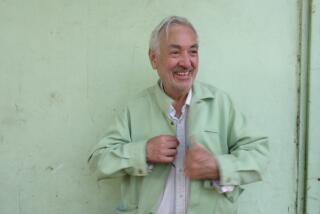Leadership at a price
- Share via
In the extraordinary article on the chairwoman of the UCLA architecture program, Sylvia Lavin is praised for recruiting extraordinary and elite faculty, embracing cutting-edge theory and technology, setting high performance standards, and maintaining a posture of toughness and intellectual rigor (“Lab for Discontent?,” April 13). Critics, some of whom are described as accomplished professionals in their own right, paint a picture that is a caricature of architectural education: an already exaggerated crucible of critical intensity, humiliation, emphasis on theory removed from “clinical” reality, nepotism, and coerced retirement.
As a medical educator, I am interested in virtually anything that involves preparation for a professional life. Last time I looked, architecture was one of the world’s great professions -- a marriage of art, technology, and the social and behavioral disciplines. The classical notion of professionalism involves mastery of some fairly circumscribed body of knowledge, a commitment to advance that knowledge, and a service ethic in response to a personal and collective mandate to address problems, to help, to support social justice.
It is safe to say that rigor and discipline are qualities most of us who are involved in professional training strive to maintain. But leadership is more than focused aggression and intellectual elitism. Leadership in professional education, as seemingly exemplified and celebrated in the profile of Sylvia Lavin, is in danger of producing “abused children” who then grow up to be “abusers” themselves. Rather, I would look to the style of the great educator and founder of the sociology of aging, Matilda White Riley. Her expectations were the highest, her work ethic that of a Navy SEAL, her support of creative imagination unconditional. Her ability to bring together a collection of the most diverse personalities and nurture the best in each while facilitating the progression of the group was astonishing. And her methods were discreet, reproducible and exemplified kindness and service, not cruelty thinly disguised as a quest for excellence.
Peter Pressman
Los Angeles
Peter Pressman is an assistant professor of clinical medicine and director of educational programs at the Pacific Center for Health Policy and Ethics at the USC.
More to Read
The biggest entertainment stories
Get our big stories about Hollywood, film, television, music, arts, culture and more right in your inbox as soon as they publish.
You may occasionally receive promotional content from the Los Angeles Times.










